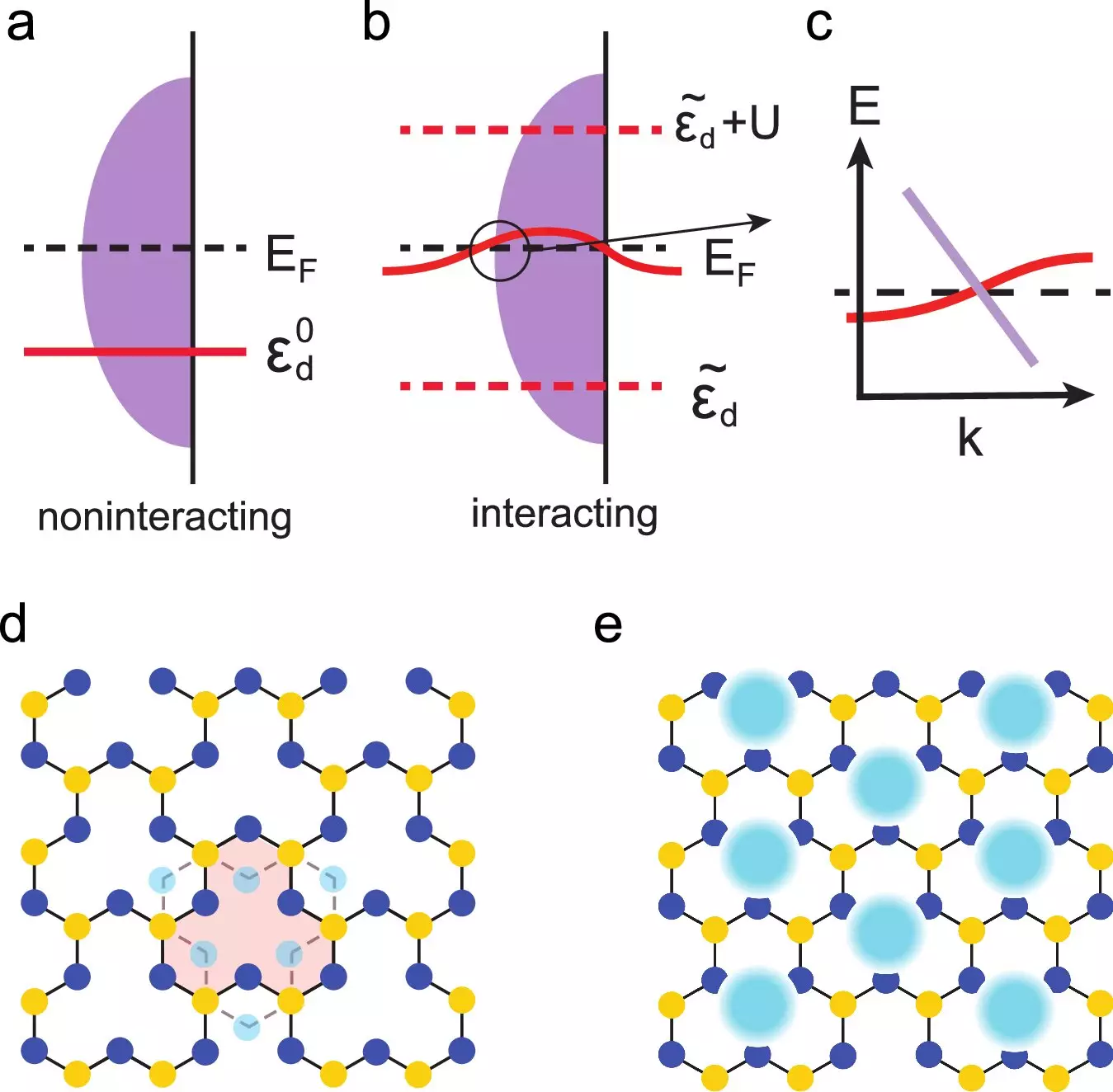In a recent study published in Nature Communications, scientists from Rice University have made a groundbreaking discovery regarding flat electronic bands at the Fermi level. This finding has the potential to revolutionize the field of quantum computing and electronic devices.
Quantum materials are governed by the principles of quantum mechanics, where electrons occupy distinct energy states. These states create a ladder-like structure, with the highest rung known as the Fermi energy. The team led by Qimiao Si found that electron interactions can give rise to new flat bands at the Fermi level, significantly impacting the material’s properties.
Typically, flat bands are situated far from the Fermi energy, limiting their influence on the material. However, in quantum mechanics, electrons can exhibit quantum interference, resulting in flat bands where energy remains constant even as momentum changes. These flat bands have the potential to enhance electron interactions, leading to the emergence of new quantum phases and unique low-energy behaviors.
Flat electronic bands are particularly sought after in transition metal ions with specific crystal lattices. These materials often exhibit distinctive properties that can be harnessed for applications in quantum bits, qubits, and spintronics. The team’s research suggests novel ways to design these materials, opening up possibilities for advanced quantum technologies.
The researchers’ findings indicate that flat bands pinned to the Fermi energy can enable the realization of new quantum states of matter, including anyons and Weyl fermions. Anyons have potential applications in qubits, while materials hosting Weyl fermions could be utilized in spin-based electronics. These discoveries highlight the versatility and responsiveness of flat bands to external signals, allowing for enhanced quantum control.
One significant implication of the study is the potential for flat bands to lead to strongly correlated topological semimetals operating at relatively low temperatures. This raises the possibility of these materials functioning effectively at high temperatures, or even room temperature. The researchers believe that their work establishes a theoretical foundation for leveraging flat bands in designing novel quantum materials for high-temperature applications.
Overall, the research conducted by Rice University’s team sheds light on the transformative potential of flat electronic bands in the field of quantum computing. By uncovering the unique properties and capabilities of these bands, the team has opened up new avenues for the development of advanced quantum technologies with enhanced functionality and performance.


Leave a Reply
You must be logged in to post a comment.